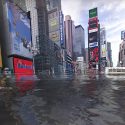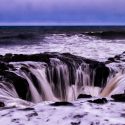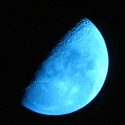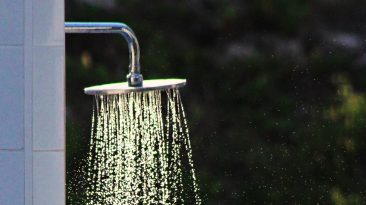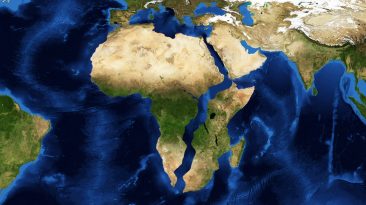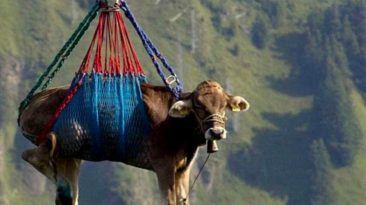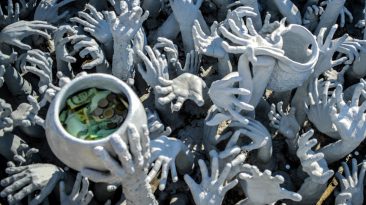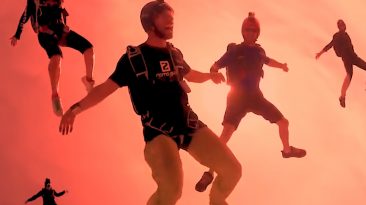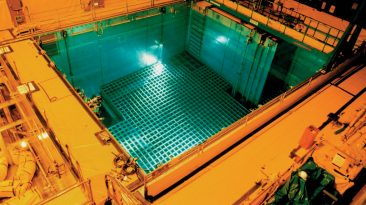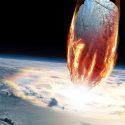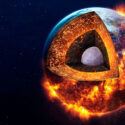Since its formation, the Earth has been revolving west to east on its axis. If one day our planet started rotating in the opposite direction, it would no longer be the Earth as we know it.
In what ways would a clockwise rotation change the Earth? And why would you end up living in a desert?
You don’t notice it, but our planet spins pretty fast – 460 meters per second (1,509 feet per second) as measured at the equator.
A sudden change of direction would cause disastrous winds and massive waves. Together, these abnormal weather conditions would wipe out nearly everything above the ground.
So let’s just skip over this destroying transition. Imagine our planet reversed its direction billions of years ago, just like our neighbouring rock Venus.
You’d see the Sun and the Moon rise in the west and set in the east. And you’d never believe that the Sahara could be a desert. All because this new rotation would generate entirely new climate conditions across all continents.
How different would our planet turn out to be?
Short answer – the reversed spin would make the Earth much greener. Long answer – this new rotation would change winds and ocean currents, and that would shift the planet’s climate entirely.
Oceans work as global climate control, distributing the Sun’s heat all over the Earth. They divert moisture from the driest, hottest badlands and carry rainfall to thorny jungles.
[dx_custom_adunit desktop_id=”RTK_CDE4″ mobile_id=”RTK_SUFd”]If the Earth reversed its rotation, one very important climate-driving current called A-M-O-C would disappear from the Atlantic Ocean. Instead, a different current would surface in the Pacific and become responsible to distributing heat around the globe.
This new current would make the deserts retreat from Africa and Eurasia. You’d have to go to the other side of the planet to do some quad biking on the golden landscape. More specifically, to Brazil.
The humid expanse of the Amazon would end up as arid sand dunes. The U.S. would also get very arid in the south. But none of the new barrens would be anywhere close to how dry the Sahara desert is now.
There’d be much more vegetation covering the planet. Hey, that’s more oxygen for all of us.
But those living in Western Europe would be in for a shock. The Pacific current would push a lot of cold water that way, bringing freezing winters to the region. Russia, on the other hand, would warm up and take a break from being the coldest country on Earth.
Life on the reverse spinning Earth would be different, too. In the oceans, cyanobacteria would dominate over other phytoplankton species.
Cyanobacteria were one of the first inhabitants on Earth. Billions of years ago, the oxygen-pumping cyanobacteria invented photosynthesis and transformed our planet’s atmosphere.
Maybe having so much more cyanobacteria on Earth would alter the atmosphere even more, filling it up with too much oxygen for us to even exist.
Let’s just leave our planet to spin the way it does.
Subscribe to What-If on Youtube or follow the show on Facebook Watch.
Sources
- “Climate Features of a Retrograde Rotating Earth” 2019. indd.adobe.com. Accessed February 4 2019.
- “Retrograde”. 2019. mpimet.mpg.de. Accessed February 4 2019.
- “What Would Happen If The Earth Spun Backward?”. Rosen, Rebecca. 2013. The Atlantic. Accessed February 4 2019.
- “BBC – Orbit: Earth’s Extraordinary Journey: What Would Happen If The Earth Spun The Other Way?”. Gibbs, Peter, 2011. bbc.co.uk. Accessed February 4 2019.
- ” UCSB Science Line “. 2019. scienceline.ucsb.edu. Accessed February 4 2019.


